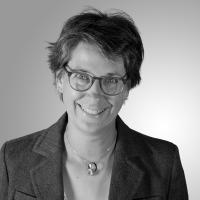Presentation of the Results of the Ahrensfelde Municipality Survey
- Event
- Date
-
- Location
- Ahrensfelde, Germany
Ahrensfelde was a "city of the future" as part of the project "City of the future - living together sustainably" and creates a vision about what the community should look like in 2030 and beyond. In order to develop the vision, a survey was conducted among the citizens of Ahrensfelde in November 2015. Doris Knoblauch presented the results of the survey at a town hall meeting on the 30 November 2015 and she also moderated the evening.
All in all, 725 questionnaires were submitted, 721 of which were valid. Children and young adults were underrepresented among the participants of the survey; adults from the age of 40 were slightly overrepresented. Citizens from Ahrensfelde were slightly overrepresented; citizens from the districts Blumberg and Lindenberg were slightly underrepresented.
After the presentation of the results, the parliamentary party leaders Peter Hackbarth (Freie Wählergemeinschaft, Ahrensfelde), Gertraude Herzog (DIE LINKE, Blumberg), Frank Meuschke (CDU, Lindenberg) and Gunther Meusel (Bürgerverein Eiche, Eiche) answered questions of the citizens that derived from the wishes and ideas expressed in the survey:
- What possibilities are there to create more attractive gastronomical options in Ahrensfelde?
- How should the school site develop in the future?
- Should the traffic surveillance (stationary and moving traffic) be intensified?
- What possibilities are there to improve the traffic situation? How can public transportation become more attractive for the citizens?
The parliamentary party leaders found the gastronomical options in Eiche and Lindenberg sufficient. In Blumberg there have been more bars before, but they were not popular among the community. There is the wish for more gastronomy in Ahrensfelde, especially in the town centre, but the responsibility for this lies with the private sector.
The school in Eiche is too far from the districts Ahrensfelde and Lindenberg, where a lot of children live. Another primary school as well as a public secondary school were among the wishes of the participants, but the decisive power for education lies with the district administration. It could also happen that two school sites would not be used to the fullest. An alternative would be the expansion of public transportation and the traffic connection.
Concerning the topic of traffic surveillance, it was stated that mainly citizens of Ahrensfelde were guilty of speeding and misusing bike lanes. There was however potential seen for occasional radar traps.
Following this, the citizens discussed four main topics in small groups (World-Café format):
- Biodiversity, water bodies, noise protection;
- Infrastructure and mobility;
- Civic participation;
- Gastronomy, culture and recreation.
Susanne Langsdorf, Arne Riedel, Doris Knoblauch and Stefanie Albrecht (all Ecologic Institute) moderated the discussions and subsequently presented the results to the group.
Many participants wished that the preservation of the neighbourhoods is considered for future housing constructions, for example through smaller apartments or geographically diversified possibilities of assisted living. The participants agreed that there is a need for a long-term, trans-regional traffic concept. A transformation should be made from recreational bike lanes for tourists to beneficial bike lanes for the citizens of the municipality that connect the different districts. The existing instruments of civic participation are not being used fully, if at all. New instruments like town meetings were discussed as well. The communication between the citizens and the politicians also needs improvement. The citizens furthermore wished for a restaurant or bar, but this is not the responsibility of the municipality. A private business needs to be found, the municipality can merely provide financial incentives. Culture was perceived as already sufficiently present in Ahrensfelde. Additionally, an intensified use of the town center as meeting point for all citizens was suggested. The activities for children and teenagers could also be improved.
After an outlook from Doris Knoblauch, mayor Wilfried Gehrke (CDU) thanked all participants for their attendance.
Ecologic Institue as well as Prof. Dr. Piorr from the University of Applied Sciences in Eberswalde supported the Ahrensfelde municipality for the project "City of the Future".



